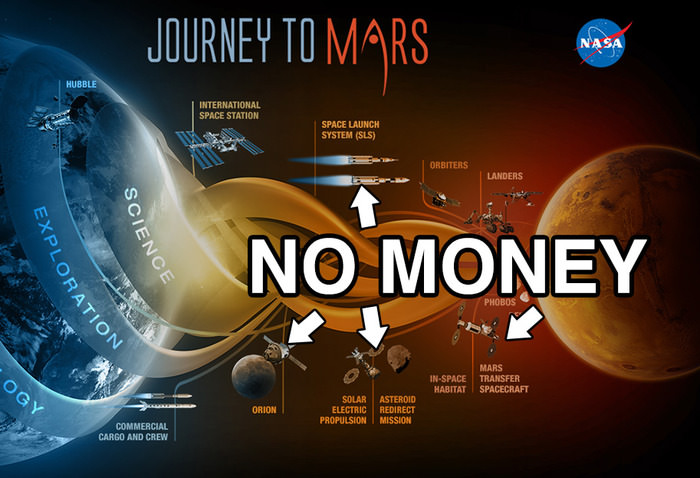Can documentary films actually change the way people think about a topic? Films like “The Thin Blue Line,” “The Triumph of Will,” and “Harlan County USA” are definitely documentaries that swayed both local public opinion and world views on specific topics. Film producer Paul Hildebrandt is hoping his upcoming documentary film “Fight for Space” will not only help sway public opinion and inform people about space exploration but also help policymakers better understand NASA.
“This is a unique space documentary, as it covers the space program from a policy perspective,” Hildebrandt said, “looking at the detailed reasons why the NASA budget has been cut over the years, why certain decisions were made, and what the future of our human space flight effort looks like.”
Hildebrant and his team have been working on this film for several years (see our 2012 article about it) and are looking for the public’s help in raising $80,000 to complete the film and get it released. They have a goal of getting the film out by May 2015, and be able to show the film at limited theatrical screenings around the country, and have it ready for public television broadcast later this year. You can see the film’s trailer above, and here’s information on how you can help support this film on Kickstarter. Timing is critical: this Kickstarter wraps up on Feb. 1, 2015.
This isn’t a “feel good” look back at NASA’s accomplishments, but it does look at the past, present, and future of the US human spaceflight effort. Some issues that Hildebrant brings up in this film are likely to be controversial, if not hard-hitting. But many in the space community have expressed opinions about the lack of leadership, budgetary instability and a deficiency in project management for NASA. This film talks with many who have been in the middle of the successes, failures and issues at NASA, with the hopes of helping to “push the people of the world and the decision makers that govern them to look up at the stars instead of at our feet.”
“Our film asks, why in over 40 years haven’t we returned to the Moon, or sent humans onto Mars?,” says Hildebrandt. “We explore issues and we bring problems to light that always are not the most positive things to talk about. But it’s important to remember that NASA has been the only organization to send humans to the Moon, or a rover to Mars, or do many of the exciting things that make up our space program today. We love NASA, what it stands for, and all that it has done.”
Take a look at the trailer and information on Kickstarter and consider helping this film become a reality.


I watched Neil Armstrong step onto the moon on live television, and I’ve seen the milestones and setbacks in the space program since. I’ve heard (and made the arguments to others) about the advances in technology that make our lives better and easier that were first space technology, so to my mind it is pretty much a given that space exploration is something we should be doing. But you know, reading again today about the criminal idiocy behind the Challenger disaster, I have lost faith in NASA.
And I see so much of the focus of the space program is trying to discover life on other planets. I’ve done the math and it seems pretty clear that having life on Earth is a genuine miracle. I would be amazed if we ever found it anywhere else. And if we did .. so what? Who cares? Of what possible interest or help is that to us?
If we want a challenge again like JFK posed in 1961, let it be for technologies that will represent the same kinds of forward leaps, steps into the unknown and not a rehash of the 60s. Let’s find a replacement for chemical rockets, find out how to create or simulate gravity and protect against radiation for long duration voyages, how to make these devices that launch and re-enter economically re-usable. Or, better still, leaps that we can’t imagine yet. I will gladly pay taxes for a program like that.
First off, the search for life elsewhere is only a small part of space exploration. If you truly follow the topic at all, this is apparent. Secondly, the “math” regarding finding life elsewhere has been done by numerous people that have spent decades on the subject and the virtually unanimous conclusion is that there is likely life everywhere that it can exist in the Universe… Lastly, finding it anywhere else would be the biggest discovery in all of human history and would thus allow us by it’s study to make advances by leaps and bounds toward knowing the true, scientific genesis of life (the most basic off all questions which literally underpins our very existence) and who knows what else per medical advances and the like. To “poo-poo” this is to be incredibly, nay, CRIPPLINGLY short sighted. Miracles only happen in fables and myths…